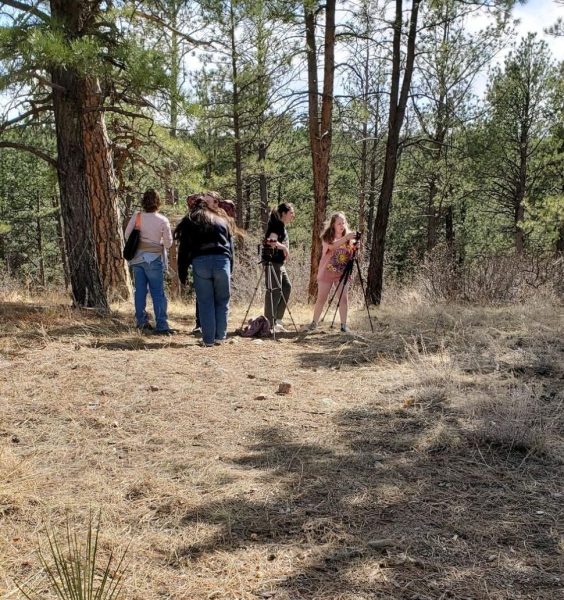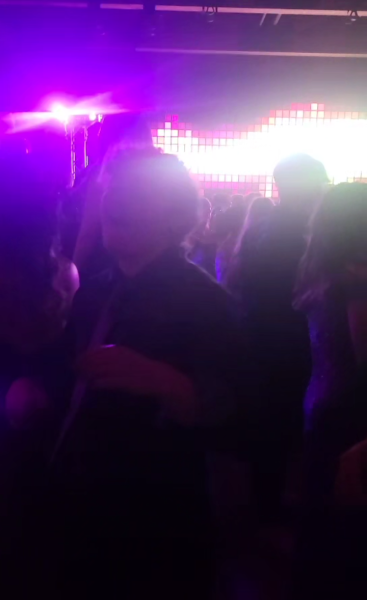Teens Diving Into The Deep Web and Staying Protected

Labeled for reuse by Pexels and Pixabay. Blue and green computer codes typed into a black screen computer through a secured browser.
Many seek refuge and essential resources while surfing the internet and the web; yet the question must be asked: is the web a safe place for teens to explore or are there unknown dangers we are ignoring?
According to Delwyn Pinto in Techworm.net, “The internet and the web, are two different entities.”
The internet includes unique items and tools such as email and message boards which have been around for a while, long before the actual web came about into the world. The web consists of all the search engines and browsers one uses in their everyday lives.
Pinto continues by comparing the web to the ocean.
Pinto explains, “The surface web is akin to the surface of the ocean, the part that is easily visible and that is accessible through Google Chrome, Mozilla Firefox, and Microsoft Edge. The deep web will then be a layer below the surface that needs you to have a scuba diving suit and the dark web will be the layer even below the deep web – the bottom part of the ocean that one needs submarines to access.”
Nowadays, more teens are becoming curious about what the web has to offer.
The dark web had originally been created by a team of US researchers to provide a way of cover and anonymity for regimes in other nations and anonymous sources. Many journalists often find themselves relying upon the anonymity that the dark web has to offer to keep their sources safe. However, since then, the dark web has found itself home to a string of illegal activity from individuals seeking the cover of anonymity.
The good news is the dark web cannot be reached by your everyday browser such as Chrome. For the past years, the surface web has provided society with great resources for us to depend on. Resources such as online tools for school, better communication and medical help.
Traci Trimbach, reflected on both the internet and web.
“While I believe there are risks for teens on the web, just as there are for adults, I think the advantages far outweigh the risks,” Trimbach said.
Junior Devin Do also sees both sides.
“The web is like a double edge sword; we gain the knowledge of others and add our perspective to the pot, but there are many people who abuse this power to benefit themselves or take advantage of others,” Do said.
While many common myths about the dark web are real, many are not. For someone to access illegal sites on the web is actually much easier said than done. Yet, the danger and risks are still there, hidden or not.
Andrew Hartmetz, currently studying cyber security in his final semester at Pikes Peak Community College, notes, “The best way to make the internet safer for teens is to be educated on internet safety…be careful where you travel and what you post, because once it is on the internet, nothing is truly deleted.”
Hartmetz offers some advice and caution.
“Make sure the website is https and not http,” he explains “The ‘s’ is for secured, which means the connection from your device to the website is secured.
He also pointed out that sites have similar brands or logos for cover only to steal others’ information. He used Facebook as an example.
Someone types in their login username and password, but when they hit the “login” button, it takes them to a “busy page.” “You might think the site is broken and close the page. In that time, hackers already have your username and password,” Hartmetz points out.
Hartmetz warns about the danger of emails/links that may be corrupted asking for your bank account information and carry something “malicious” like a virus, worm, or Trojan Horse(malware that deceives users of its true function). He continuously recommends having your device protected at least by its basic default security to stay secured from such viruses.
“Nothing is a perfect shield, but you are less likely to be attacked if you stay smart. The trick is just think of how you can protect your information,” he points out..
Trimbach also points out how entwined we are with the web.
“We were able to survive without the Internet for centuries before it came into widespread use. But, with the massive changes that have occurred with its use in the last twenty years, it would be very difficult, if not impossible to live without it now.”
The internet and web provide convenience in many areas: banking, reading, communicating and learning about medicine
Hartmetz has a simple answer to this issue that haunts us every time we open our computers to write our blogs and homework assignments.
“It is a game of catch up, but it is better to be ahead when you can,” Hartmetz notes, urging users to arm themselves with information and implement safe practices.
With the technology world booming and more of society using it everyday, professional experts in cyber security recommend society all stay protected while using such tools. From basic data security on your cell phone to anti-virus platforms on your laptop. From a simple broken site to an unfortunate hack of data on the deep web, teens find themselves victims to many of these incidents due to unsafe exploring. How far is society willing to go to keep the web safe from harm? Like Do’s notion of the “double-edge sword”, the web is here to protect society but just as it is good, the bad is there too.

How’s it hanging guys? My name is Angel B. Jimenez and it's my first year here at the Jetstream Journal. I’m super excited to explore the corridors...












